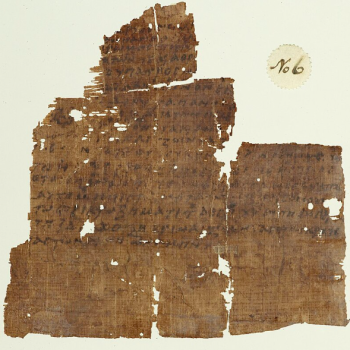Hence, the secular theocracy exalts a sovereign and powerful state that pervades all of life and compels obedience not just to its mandates but to the secular nationalism of the Zeitgeist itself, which the populace is forced to conform to and fund. This worldview dominates public schools, colleges and universities, elite media, entertainment, and an ever-expanding array of government domains in law, health care, welfare, retirement, transportation, commerce, parks and recreation, etc. Not coincidentally in the modern era when nation states have displaced God, Cavanaugh notes, "it does not matter that the U.S. flag does not explicitly refer to a god. It is nevertheless a sacred—perhaps the most sacred—object in U.S. society and is thus an object of religious veneration." And worship in the secular theocracy in schools and at public events consists of singing the "National Anthem" and saluting the flag in "The Pledge of Allegiance," which as described by its socialist author Francis Bellamy (in To Die For: The Paradox of American Patriotism, p. 178), "is the same with the catechism, or the Lord's Prayer."
In contrast, C.S. Lewis understood that natural law applies to all human behavior, including the behavior of government officials, and he clearly saw that government power was a dangerous force that needs to be strictly limited. Contrary to secular interpretations of the Establishment Clause, the issue is not "the separation of church and state" into distinct and conflicting realms but the reduction of state power to micro-minute levels in order to eliminate the establishment of a state-backed church of any kind. Individuals have property rights that are sacred and need to be protected under a uniform rule of law; Christianity instructs us in the civic virtues upon which such law depends, and good ends can only be pursued using good means. The result is the recognition that compelling people into some collectivist regimentation is evil and produces immense human suffering. Lewis noted (God in the Dock, p. 315) that:
I do not like the pretensions of Government—the grounds on which it demands my obedience—to be pitched too high. I don't like the medicine-man's magical pretensions nor the Bourbon's Divine Right. This is not solely because I disbelieve in magic and in Bossuet's Politique. I believe in God, but I detest theocracy. For every Government consists of mere men and is, strictly viewed, a makeshift; if it adds to its commands 'Thus saith the Lord,' it lies, and lies dangerously.
The point is that the natural law is rooted in the religio of Christianity and sets the epistemic and moral foundation and context for the existence of all people as individuals, and that such laws make the cooperation, norms, and relationships of community possible. To break the natural law in the name of a secular theocracy is simultaneously to break the relational bonds of community that are the basis for the natural rights of all individuals to be free and responsible.
Moreover, the solution is to end secular theocracy by de-socializing the public square, not seek to "take over" this theocracy. This means privatizing government schools, transportation, welfare, retirement, parks and recreation, commerce, civic areas of all types, etc., and allowing covenants, and other private institutions and communities to flourish. (See The Voluntary City.) Those who believe that such government domains are workable and should be exempt from natural law tenets are hubristically fooling themselves and end up embracing the moral relativism of utilitarianism. As Lewis further noted in The Weight of Glory(pp. 168-169):
[S]ince we have sin, we have found, as Lord Acton says, that "all power corrupts, and absolute power corrupts absolutely." The only remedy has been to take away the powers. . . .Theocracy has been rightly abolished not because it is bad that priests should govern ignorant laymen, but because priests are wicked men like the rest of us.




